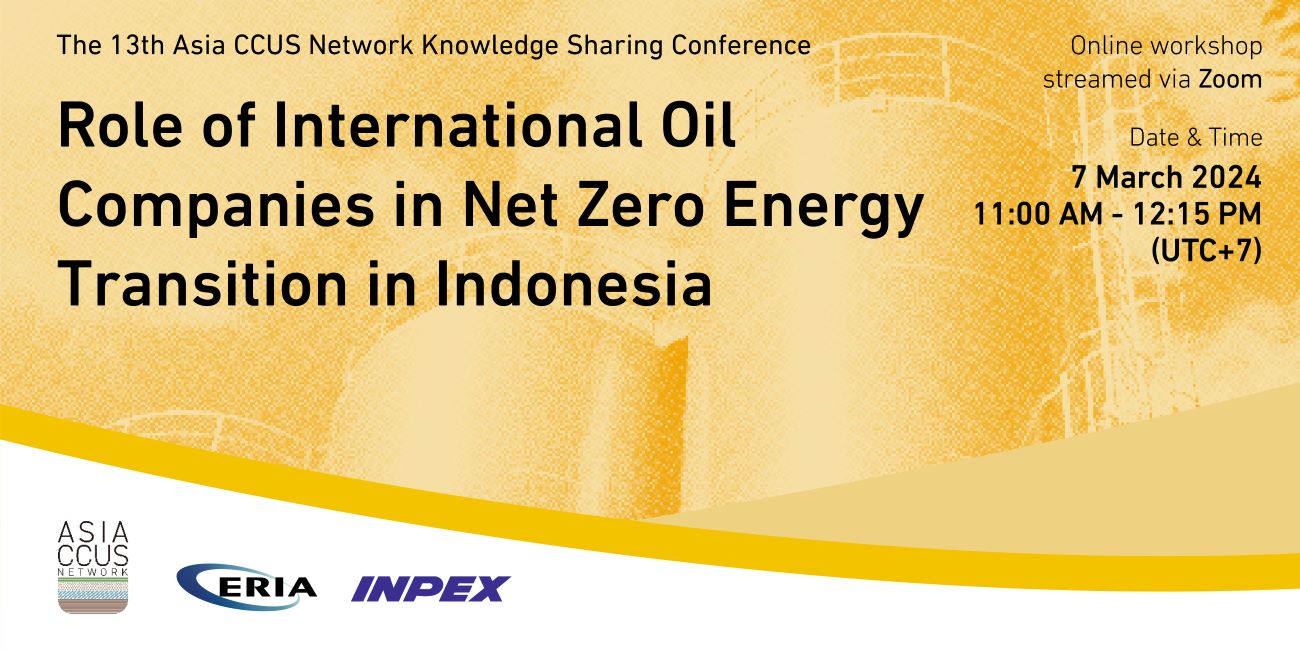News
News
Opinions

Thu, 7 March 2024
Indonesia has declared its target to reach Net Zero Emission (NZE) in 2060, leading the country to renew its energy strategy. However, considering the trilemma faced by Indonesia i.e. maintaining energy security, affordable and accessible energy sources, and decarbonizing to meet emission targets, Indonesia will continuously rely on fossil energy especially gas as a transition energy. In such cases, investing in oil and gas exploration and production is imperative for the country.
Indonesia's government has set the target to achieve natural gas production of 12 billion cubic feet per day (bcf/d), which is equivalent to about 123 billion cubic meters (bcm), by 2030. To achieve this target, the Indonesian government needs to increase its natural gas production 2.11 times in 8 years from 58 bcm in 2022.
To achieve the production target, the Indonesian government actively takes any necessary measures such as improving the fiscal system, business process, and licensing. As part of Indonesia’s program to meet the NZE target, the government has implemented an advanced technology carbon capture use and storage (CCUS) in upstream oil operations. In addition, Indonesia is also open to providing services to store CO2 emissions from other countries. Ministerial and government regulations have been issued to accommodate the objectives.
The international oil companies play as important partners in Indonesia’s oil and gas industry. Indonesia as the host country works closely with international oil companies such as ExxonMobil, ConocoPhillips, Total, Shell, INPEX, Eni, Mubadala, etc. About 70% of gas and 30 % of oil are produced by international oil companies.
However, the role of international oil companies may change in the era of energy transition to net zero emission. In response to the 1.5-degree scenario, international oil companies also pledged to Net Zero Emission Plan, and dynamically consolidate their portfolio of their operation. As part of the consolidation strategy, international oil companies exit their operation in one region and focus on the region where economies of scale of their operation exist. Shell, ConocoPhillips, and Chevron have exited from Indonesia, while on the other hand, Eni, INPEX, and BP expanded and extended their operation to achieve better profitability.
In meeting the NZE target, international oil companies rely on various programs such as implementing CCS-CCUS, promoting zero flaring, improving energy efficiency in operation, and applying nature-based solutions. Some of the companies transformed their operation to become an energy company by actively investing in renewable energy.
These changes may lead the investors to adjust the criteria in making investment decisions. How host countries and investors balance their interests to achieve a win-win situation will be important in delivering oil and gas projects. It is important to hear the views of the investors on their expectations in deciding investment and at the same time to meet the 1.5-degree scenario.
INPEX is a Japanese multinational corporation engaged in oil & gas exploration and production, its marketing, and net zero businesses, such as Geothermal, Solar, and Wind power. In February 2022, INPEX announced “INPEX Vision @2022” which includes a Long-term Strategy and a Medium-term Business Plan. Implementing CCUS is one of INPEX’s strategies in the long-term strategy. The company has made a tremendous effort for CCUS deployment.
Considering that INPEX is one of the companies that continuously build the operation in Indonesia. INPEX notoriously project is Abadi LNG equipped with CCUS as EGR may keep the company operation in Indonesia in 30-50 years to come. It is worth learning from INPEX to understand the hurdles and challenges they face in developing projects including CCUS projects in Indonesia and other countries where the company has a stake. The lesson learned will cover INPEX’s view and analysis of the factors that may lead investors to invest in the oil business, host government policies required by investors, fiscal and taxation systems that allow fair risk mitigation, and other relevant issues in the era of energy transition. The lesson learned and analysis expected could enrich the understanding of government and investor relations in promoting decarbonization in Asia.
This knowledge sharing conference will be led by Ryohei Masumoto, Chief Analyst and General Manager, Research Business Department INPEX Solutions, LTD.
|
11 AM – 11:05 AM |
Shigeru Kimura, Special Advisor on Energy Affairs to the President |
|
11:05 AM – 11:35 AM |
Moderated by Dr Gusti Sidemen, CCUS Fellow, ERIA Presented by Mr Ryohei Masumoto, Chief Analyst and General Manager, Research Business Department, INPEX Solutions, LTD |
|
11:35 AM – 11:45 AM |
Comment from Dr Luky Yusgiantoro, Head of Indonesia Oil and Gas Institute, SKKMIGAS |
|
11:45 AM – 12:10 PM |
Q&A |
|
12:10 PM – 12:15 PM |
Dr Han Phoumin, Senior Energy Economist, ERIA |
Invitations | Publications | Newsletters